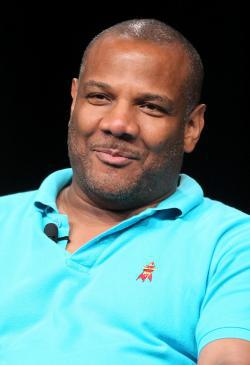And then there were four. News broke on Monday of the emergence of yet another accuser in the weeks-long downfall of Kevin Clash, the puppeteer and voice actor most famous for giving life to Sesame Street’s beloved Elmo character. Two weeks ago, a third accuser emerged with claims of having had sex with Clash when he was 16, following on the heels of similar charges from Cecil Singleton and Sheldon Stevens, the latter of whom has since recanted. The allegations of sex with teenage boys have already led Clash to resign from Sesame Street and almost certainly signal the end of his career in children’s entertainment.
Like Katherine Franke, a scholar of gender and sexuality law at Columbia, I worry that the general response to these charges constitutes a grade-A “sex panic,” a pitchfork-wielding, irrational, damn-the-details response to sexual relationships that make a lot of us uncomfortable. Franke would likely defend intergenerational relationships in stronger terms than I’m interested in doing; my concern is with the unfair and inaccurate attachment of the word “pedophile” to Clash. Because even if all of these allegations turn out to be true, none of them actually qualifies him as having that pitiable condition.
Pedophilia is defined by the DSM as an attraction to prepubescent children (generally 13 and under), which, as far as we know, does not apply to Clash. Yet, despite the details of the allegations, comment sections and online chatter make it clear that we still wonder if he actually hasn’t done something to hurt the children he’s been so gifted at entertaining—did this whimsical, child-like man use his “magical” influence for ill? Scanning the coverage, it’s not hard to find the strongly suggested connection between sex, puppets, and, ultimately, young children in all the outrage.
As opposed to these fantasy victims, the real-life accusers (all 15 or 16 at the time of the alleged interactions) are not quite the same thing as “children.” And the accusations are not that he talked little kids into bed with Elmo on his hand, but that he visited gay chat lines and attended parties where he met underage guys with whom he eventually had sexual contact.
As Singleton told the Daily Beast, he chose to dial-in, flirt, and, ultimately, spend time with Clash in person. “I’m not comparing my situation to a child being molested,” he said. “Seduction and molestation are two different things but when it’s a child, it’s still abuse.” I absolutely agree with Singleton—it is abusive to seduce and/or molest a child, but since he wasn’t really one at the time of the allegations, it’s good he’s not comparing his very different situation to that.
Gay teens have been known to seek out relationships with older men—as Singleton himself said he did before becoming involved with Clash—due to isolation (straight kids generally have their pick of “age-appropriate” partners, which is not always true of gays), curiosity, or even just horniness. Of course, while these relationships may be consensual in spirit, they are against the law depending on the somewhat arbitrary determination of what constitutes the “age of consent” in each state. Still, I know many gay men who have been on the younger end of this kind of situation; many only look back on it with fondness, gratitude, or sometimes even condescension at the silly old people they used to get rides and alcohol. Of course, power imbalances are real, and others come out damaged. Experiences differ.
Again, I’m not necessarily defending these kinds of relationships—they are clearly fraught and have the potential for terrible outcomes. But our weird cultural investment in teenage “innocence” has led many to ignore the specifics of the Clash case and unjustly paint the man as a pedophile. The ethical landscape is much muddier than the coverage of and reaction to Clash would lead you to believe.
